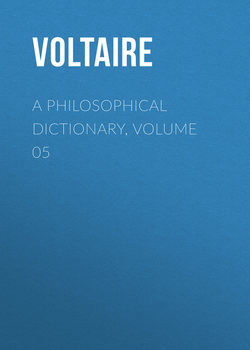Читать книгу A Philosophical Dictionary, Volume 05 - Voltaire, Вольтер - Страница 11
FIERTÉ
ОглавлениеFierté is one of those expressions, which, having been originally employed in an offensive sense, are afterwards used in a favorable one. It is censure when this word signifies high-flown, proud, haughty, and disdainful. It is almost praise when it means the loftiness of a noble mind.
It is a just eulogium on a general who marches towards the enemy with fierté. Writers have praised the fierté of the gait of Louis XIV.; they should have contented themselves with remarking its nobleness.
Fierté, without dignity, is a merit incompatible with modesty. It is only fierté in air and manners which offends; it then displeases, even in kings.
Fierté of manner in society is the expression of pride; fierté of soul is greatness. The distinctions are so nice that a proud spirit is deemed blamable, while a proud soul is a theme of praise. By the former is understood one who thinks advantageously of himself while the latter denotes one who entertains elevated sentiments.
Fierté, announced by the exterior, is so great a fault that the weak, who abjectly praise it in the great are obliged to soften it, or rather to extol it, by speaking of "this noble fierté." It is not simply vanity, which consists in setting a value upon little things; it is not presumption, which believes itself capable of great ones; it is not disdain, which adds contempt of others to a great opinion of self; but it is intimately allied to all these faults.
This word is used in romances, poetry, and above all, in operas, to express the severity of female modesty. We meet with vain fierté, vigorous fierté, etc. Poets are, perhaps, more in the right than they imagine. The fierté of a woman is not only rigid modesty and love of duty, but the high value which she sets upon her beauty. The fierté of the pencil is sometimes spoken of to signify free and fearless touches.
